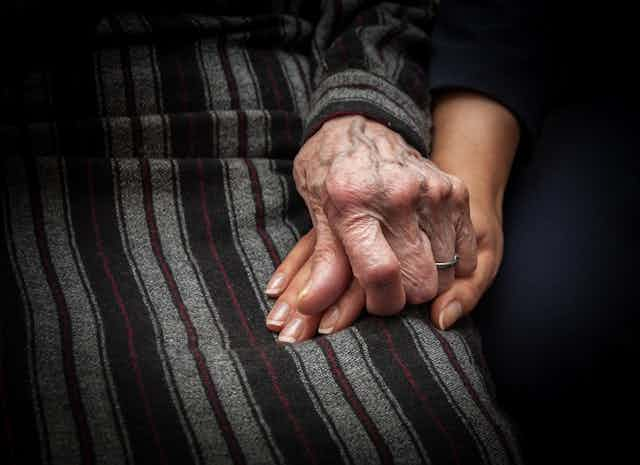Older people and their families have been “left to fend themselves” as the social care system in the UK slips into an extreme crisis, according to a new report. After years of warnings about major demographic change and rapidly rising need, including from people using care services, it is hardly surprising that the new research from the King’s Fund and Nuffield Trust says the next five years “look bleak”.
Since 2010, governments have explicitly committed themselves to a smaller state, draconian public spending cuts in the name of “austerity” and swingeing reductions in local government budgets.
The social care system is clearly failing to meet the needs of older people and causing damage to them and their families. It is also badly damaging the NHS, which is now considered to be increasingly undermined by the failure of social care to ensure community support. As a result, there are problems of wasteful and damaging emergency re-admissions and “bed-blocking” – where elderly people remain in hospital instead of receiving care.
Reductions in central government grants have put increasing pressure on companies and authorities who provide residential, domiciliary and nursing care services. This means social care is now dominated by a private sector which too often either isn’t working to best look after those who need it, or to make the profit the system now necessitates. The large care home provider Four Seasons Health Care is currently struggling under a mounting debt burden and in June a committee of MPs warned that “there is a real threat that many care providers will not survive” because financial conditions are unsustainable.
The King’s Fund report contributes detailed evidence from national data and local case studies showing just how bad things are. It says that over the past five years, local authority spending on care for older and disabled people has fallen by 11% in real terms, and the number of people who received state-funded help had fallen by 26% despite the numbers needing it increasing.
Public spending on adult social care is set to fall to less than 1% of GDP by 2020, with a predicted funding gap of £2.9 billion by 2019 and many councils struggling to meet basic statutory duties. One million people with care needs now receive no formal or informal help – a rise of 10% in one year alone. The report also notes that over 40% of money paid to care homes came from people paying for themselves.
Means-testing excludes too many
The report’s authors rightly argue that “a frank and open debate is needed on how to fund health and social care on a sustainable basis into the future”. But this has to mean more than they seem prepared to say. It’s impossible to see how social care can be fit for purpose so long as it remains means and needs-tested like a relic of the Poor Law – the way society looked after the less well-off in the 19th century – as well as inadequately funded.
Under the current system, if you have assets or savings of less than £23,250 then the government will help pay for the cost of your care. This means that only the poorest get help to pay for services, including help in the home for daily tasks such as washing and dressing, as well as round-the-clock support in care homes and nursing homes.
Means-testing is excluding more and more older and disabled people with support needs. Ever-narrowing eligibility criteria mean support is increasingly restricted to people in the most extreme situations who fall under the categories “critical” and “substantial”, undermining all efforts to build prevention into the system.
Plans to change the way means-testing is carried out have been delayed until April 2020, when a sliding scale of support will be introduced for those with assets or savings of between £17,000 and £118,500.
Fund social care like the NHS
Before the recent cuts kicked in, there used to be three broad groups of older people: those well served by the social care system, those who fared less well, and those who needed its help but fell outside it. To that we can now add those better able through higher income or cultural capital to get the most out of social care, and those who – poorer and disadvantaged – do especially badly.
The rights and needs of hundreds of thousands of older and disabled people are being neglected and their difficulties left to worsen under a hopeless system of social care. But while the King’s Fund report says that older people are faring the worst from the poor state of social care, this ignores the plight of working age disabled people who are facing the double whammy of harsh and inefficient “welfare reform”, as well as severe cuts in social care support.
Adequate funding and real integration are only likely to come when social care services share the same funding base and principles as the NHS. This means a health and social care system jointly based on principles of universalism, funded by a progressive system of general taxation. Recent governments have seen this as an unrealistically costly option. But if they look at the financial and human costs for millions of the present unsustainable system, they might be convinced of the need for such fundamental reform.

